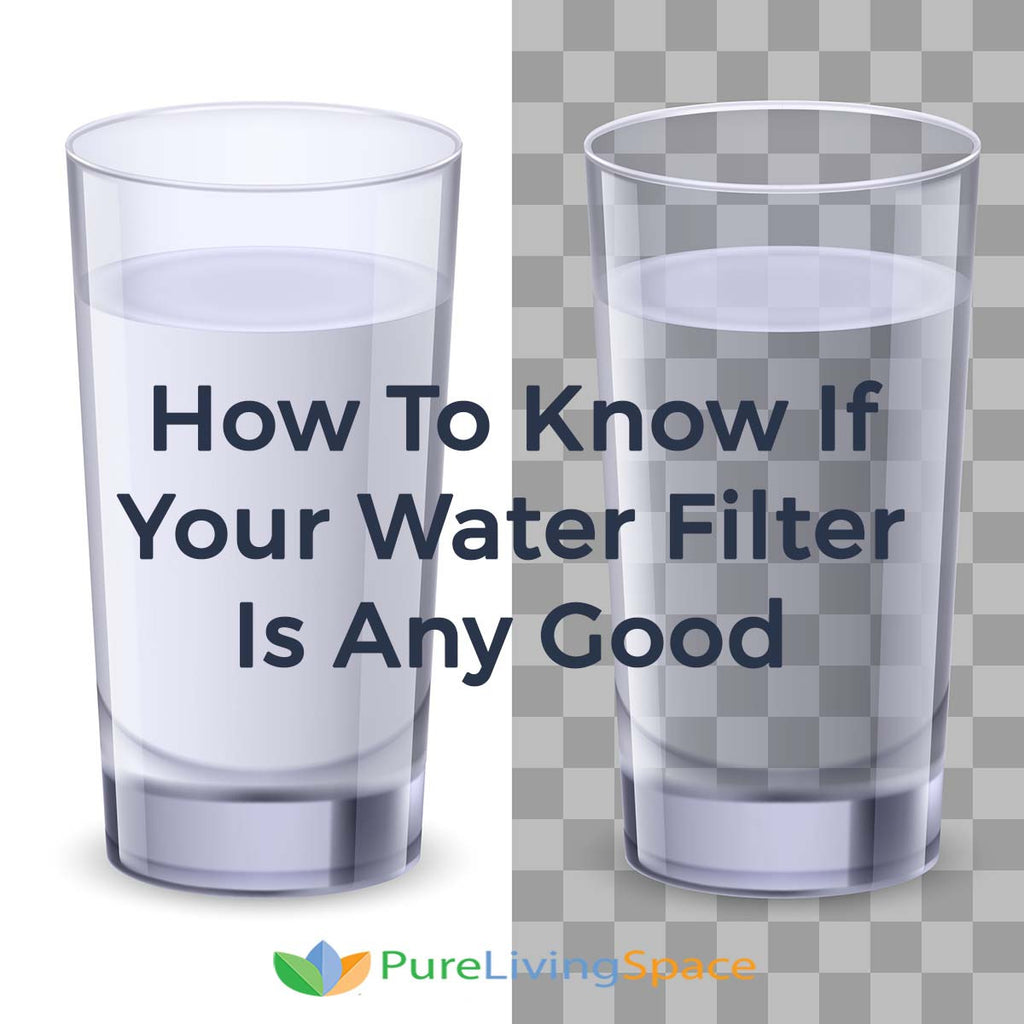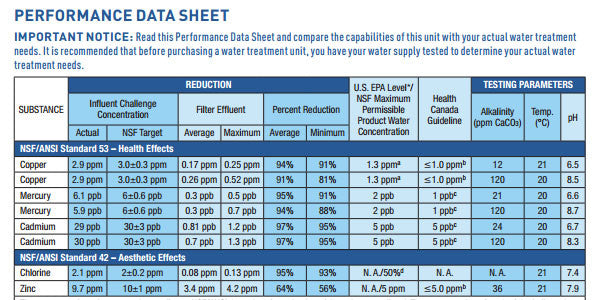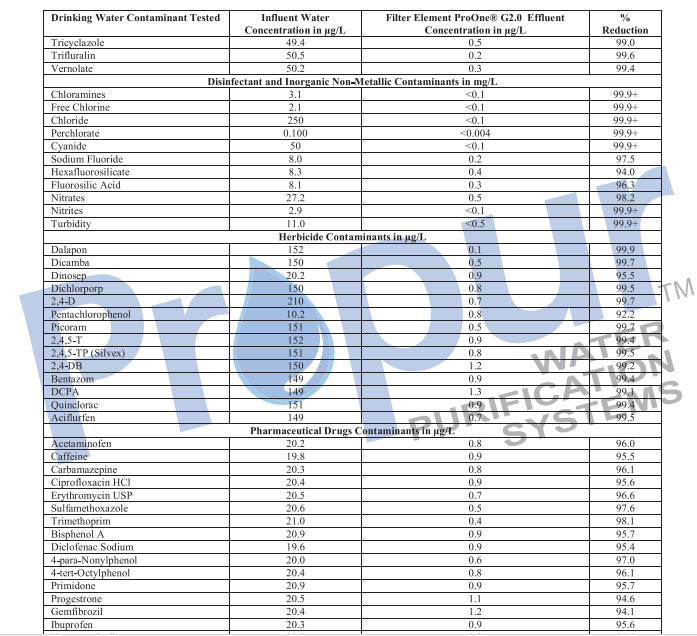How To Know If Your Water Filter Is Any Good

Many people think that water filters perform equally, so they grab a water pitcher filter at their big box store without thinking. Or, they install a Reverse Osmosis (RO) water filter system and assume they’re getting the purest water available. Unfortunately, it’s not that easy. Why? Because water filter effectiveness varies significantly.
Water Filter Effectiveness – Performance Varies
Even among the same type of filters, the effectiveness can vary. You might assume that a water pitcher filter performs the same across brands. But, it’s not true. Take the Brita water pitcher filter for example. It removes Chlorine and a handful of other contaminants. While another pitcher removes over 200 contaminants. That’s a huge difference in the purity of your water.
For RO systems, you can also have a difference in effectiveness. One RO system might remove 50% of a contaminant like arsenic, while another may reduce 99.9%. If you have arsenic in your drinking water, you’d obviously want the one with the better performance.
With this wide variation in effectiveness, how do you know if your water filter is any good? You can assess your water filter effectiveness by following these steps.
1. Find & Read the Test Reports
The worthwhile water filter manufacturers have their water filters tested by certified third-party labs. These labs confirm the manufacturer’s claims. It’s not difficult for filter makers to test their products, and short of testing your water yourself, it is the only way you’ll know whether your filter is performing to your expectations.
Most water filter companies publish the lab test reports on their websites. If the reports aren’t published, call the company to request a report. Some companies don’t bother to test and you’ve got to wonder why. You should never buy a water filter that hasn’t been tested by a certified third-party lab. Period.
The next step is to analyze the report. Below is a portion of a report from a brand name water pitcher filter. As you can see, it is limited to removing Chlorine and a handful of other substances. Notice that it doesn’t even reduce lead!

Compare that to a report on a high-performing pitcher, the Propur Water Pitcher. There’s a big difference in the number of water pollutants that the pitcher filters remove. The report is just one page out of a six-page report.

On the surface, it may seem that all water pitchers are the same, but when you look more closely, you can see the meaningful differences. It’s always good to read the lab test reports.
2. Verify the Third-Party Lab
Step 2 is to verify that the lab that performed the tests is certified. Filters certified by NSF are by definition certified. If your filter is not certified by NSF, then you should do an online search for the lab and look for proof that they are certified to test water filters. You can typically find this proof in the “about us” section of the website.
Some water filter manufacturers post their in-house test results, cherry-picking their best numbers to compare to other filters. Don’t fall for this approach. It’s always best to compare performance by analyzing the full reports side-by-side from certified labs.
3. Get to Know Your Water
The last step is to gather information about your water quality. Start by doing a search for your city’s water quality report. Enter your city name followed by “water department report” to see the latest posted water report for your municipality.
As you read the report, start by understanding whether your water department uses chlorine or chloramines to disinfect your water. If you see chloramine in the report, then you’ll know that your water filter needs to remove chloramine. This is a key point. Most brand name water pitcher filters remove chlorine and not chloramine. In fact, the brand name water pitcher’s report above clearly shows it removes only chlorine.
Scan the rest of the report. Look for areas where your water department is failing to meet the MCLG which is the stricter standard. Maybe your water department detected arsenic in your water. According to the EPA, no amount of arsenic is safe, but some arsenic is allowed due to the cost of removing it. If this were the case for your water, you’d want a water filter that removed 99.9% of arsenic to do the job your water department can’t do because of the expense.
When you read the water quality reports, keep in mind that not all harmful contaminants are regulated. For example, PFOAs are not yet regulated but are harmful to your health. So, even if your city’s report looks squeaky clean, your water may have pollutants you’d rather not consume.
After getting to know your water and analyzing your water filter effectiveness based on the certified lab results, you’ll know whether your filter is meeting your expectations.
How to Make it Easier to Find the Best Water Filter
If this all seems overwhelming, it doesn’t have to be! At PureLivingSpace.com, you can rely on our water filter recommendations and have quick and easy access to the third-party lab results.
Want to learn more about water filters and filtration? Read The Complete Guide to Water Filtration. It will address your questions about why it's important to filter drinking water, explain different types of water filters, and provide our 2018 recommendations.
Questions? We love to help. Please contact us.










